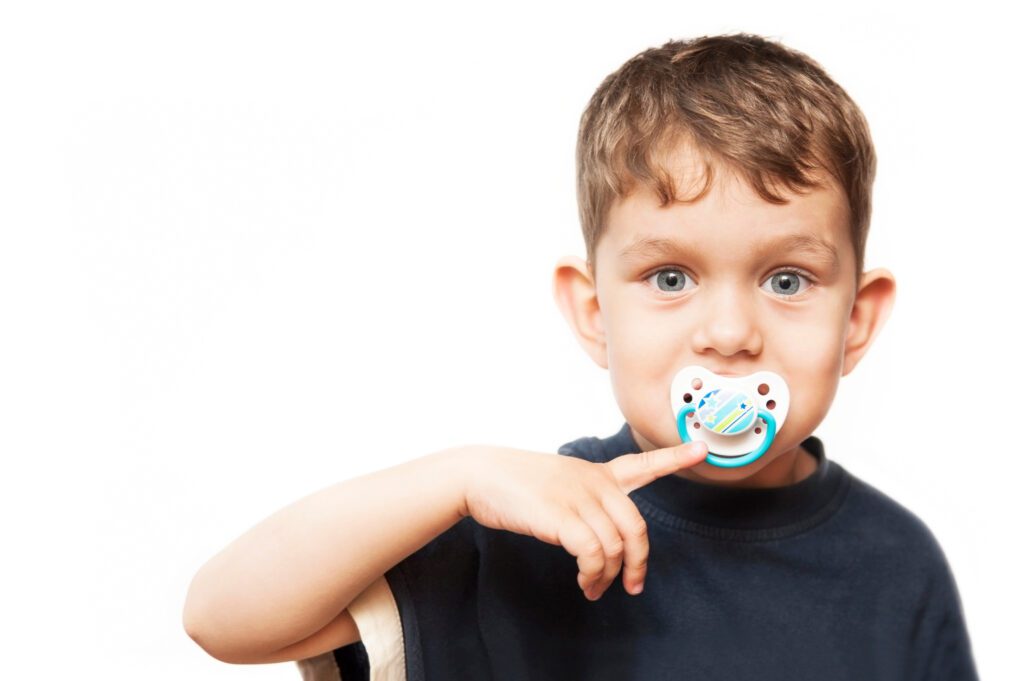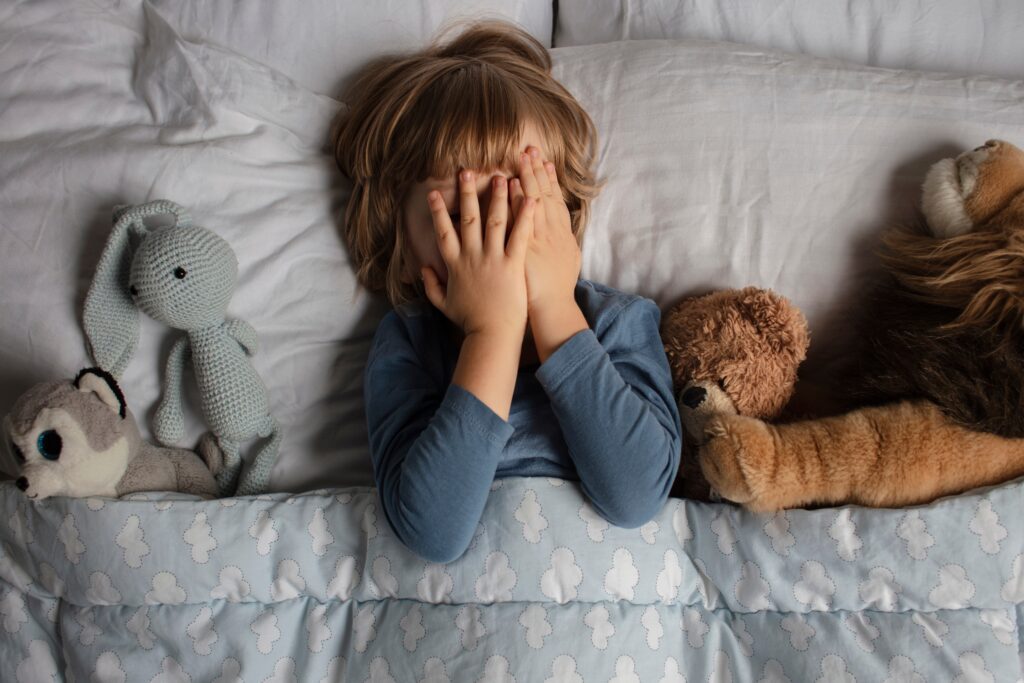
Blog
How Pacifier Use Affects Dental and Speech Development
Author: DrSensory
June 29, 2025
How Pacifier Use Affects Dental and Speech Development
Pacifiers can be a soothing tool for infants, but prolonged use may interfere with oral development and speech. Parents often wonder: When should I take the pacifier away? Is it really harmful after age 1?
This guide breaks down:
Best practices for pacifier use
The dental and speech risks of prolonged use
Practical weaning strategies
Breathing vs. Chewing: How Airway Health Impacts Oral Skills
How Baby Bottle Use Can Impact Oral Development
The Link Between Tongue Posture and Jaw Development in Kids

Age-Appropriate Use and Best Practices
Pacifiers are most beneficial during the first 6–12 months of life, especially for soothing and helping with sleep. But after infancy, the risks start to outweigh the benefits.
Recommended Guidelines:
Limit Use to Infancy: The American Academy of Pediatric Dentistry (AAPD) suggests phasing out pacifier use by 12 months to avoid misalignment or speech issues.
Choose Orthodontic Pacifiers: Select pacifiers labeled as “orthodontic” with a soft, flexible nipple that promotes natural oral development.
Wean Between 12–18 Months: Gradual weaning during this time minimizes emotional distress while also preventing long-term oral complications.
Avoid:
Using pacifiers for older toddlers during awake time
Dipping pacifiers in sweet substances (increases cavity risk)
Relying on pacifiers as the primary comfort tool
How Dental Alignment Affects Chewing and Swallowing in Children
Risks of Extended Pacifier Use on Teeth and Speech
Prolonged pacifier use—especially after age 2—can affect dental alignment, jaw development, and speech formation.
Dental Risks:
Open Bite: Front teeth fail to meet properly, leading to bite problems.
Crossbite: Improper overlap between upper and lower teeth.
Narrowed Palate: A high or narrow palate can affect proper chewing, swallowing, and breathing patterns.
Speech Risks:
Tongue Posture Problems: Pacifiers encourage a low resting tongue position, which can affect articulation.
Reduced Verbal Practice: Extended pacifier use limits the opportunity for babies to babble, mimic, and explore sounds—key milestones for language development.
Delayed Speech: Some children show speech delays or articulation errors (like lisping) due to prolonged sucking habits.
Understanding Your Child’s Dental X-Ray: What Parents Should Know
How Dental Alignment Affects Chewing and Swallowing in Children
Baby Teeth and Speech Development: How Are They Connected?
When Is Thumb Sucking a Problem? A Developmental Guide for Parents
How to Wean Your Child Off the Pacifier
Weaning doesn’t have to be stressful. Here are gentle yet effective ways to help your child transition:
Weaning Strategies:
Gradual Reduction: Limit use to sleep time only, then phase it out completely.
Positive Reinforcement: Celebrate each “pacifier-free” day with stickers, praise, or small rewards.
Offer Comfort Alternatives: Soft toys, blankets, or calming routines can replace the emotional security of the pacifier.
Encourage Oral-Motor Activity: Read books, sing songs, and talk frequently to promote speech development and muscle use.
If your child struggles with weaning, consider consulting a pediatric dentist or speech-language pathologist who specializes in early oral development.
Signs Your Child May Have a Hidden Oral Restriction
How Dental Alignment Affects Chewing and Swallowing in Children
The Importance of Brushing Teeth Starting at a Very Young Age
Pacifiers can be helpful in early infancy—but knowing when and how to stop is crucial. Extended use can impact your child’s teeth alignment, palate shape, and speech milestones. By following age-appropriate guidelines and gently weaning at the right time, you’ll support your child’s healthy oral and language development.

🔍 Frequently Asked Questions (FAQ)
❓ When should my child stop using a pacifier?
Experts recommend beginning to wean around 12 months and fully discontinuing pacifier use by 18–24 months.
❓ Can pacifiers cause permanent damage to teeth?
If used beyond age 2–3, pacifiers may cause bite problems, such as open bites or crossbites, which may require orthodontic treatment later.
❓ Do pacifiers delay speech?
Extended pacifier use can delay speech by limiting oral-motor practice and affecting tongue posture, especially if used during the toddler years.
❓Are orthodontic pacifiers better for my baby?
Yes. Orthodontic pacifiers are designed to support the natural shape of the jaw and palate, reducing the risk of dental issues.
related blogs
Your child is constantly moving, crashing into furniture, or having meltdowns in response to seemingly minor things like a loud
Your toddler refuses to wear certain clothes, has huge meltdowns in noisy places, or is an extremely picky eater, limited
Your child seems to miss verbal instructions, struggles to follow conversations in noisy environments, and often asks "what?" even when
On the surface, autism and Ehlers-Danlos syndrome (EDS) might seem like two entirely unrelated conditions. One is a neurodevelopmental condition
The intense head pain begins, lights feel blindingly bright, and every sound seems amplified to an unbearable level. You retreat










































































